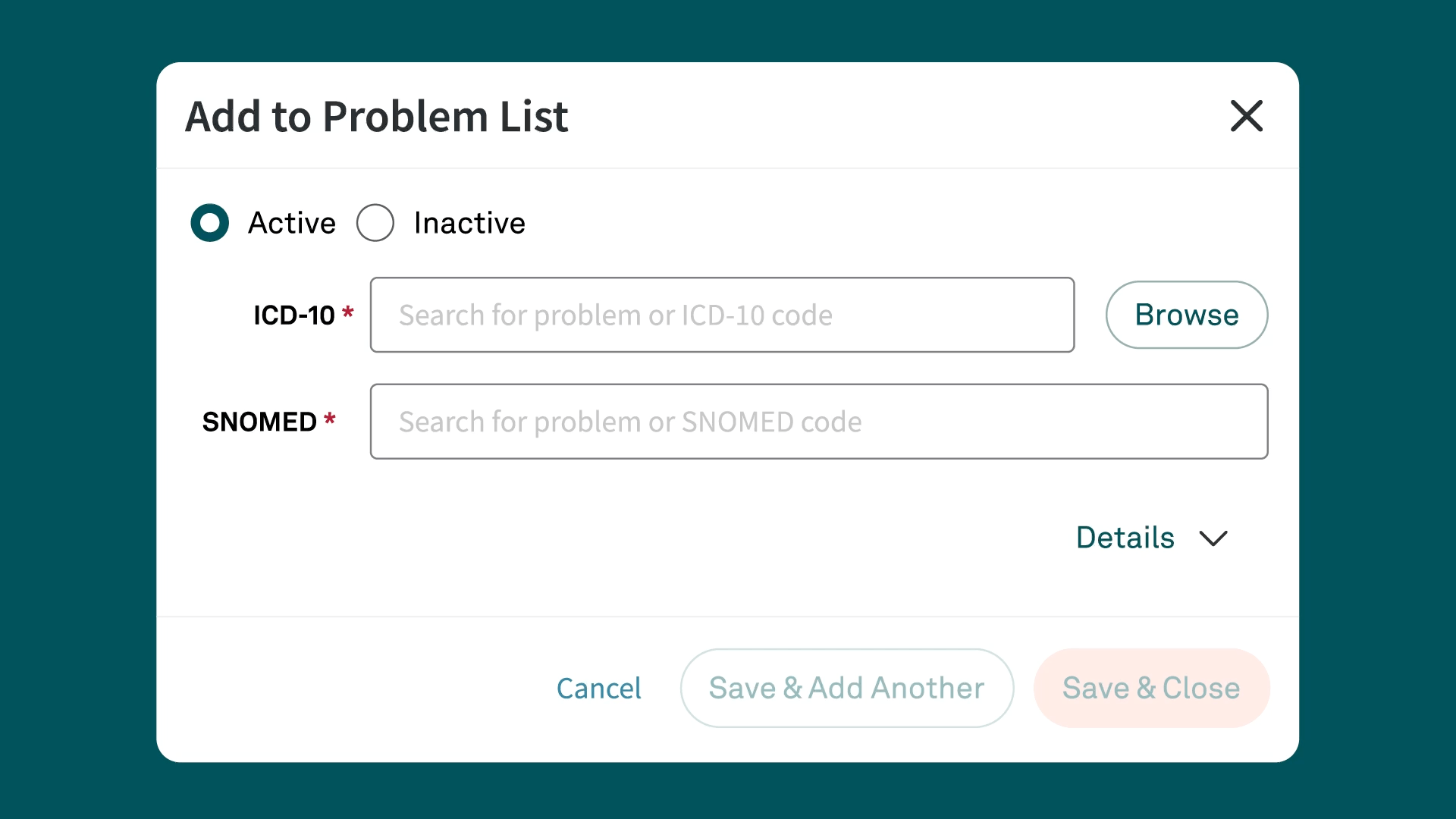ICD-10 Code R74.8
Abnormal levels of other serum enzymes
What is the code R74.8?
ICD-10-CM code R74.8 refers to "abnormal levels of other serum enzymes." This code is used in medical billing and coding to document instances where a patient's blood test reveals abnormal levels of enzymes that are not specified under other specific codes. Enzymes play a critical role in various bodily functions, and abnormal serum levels can indicate a range of health issues that may require further investigation or intervention.
Detailed description of R74.8
R74.8 is categorized in the International Classification of Diseases, 10th revision, Clinical Modification (ICD-10-CM) chapter for "symptoms, signs and abnormal clinical and laboratory findings, not elsewhere classified" in the section titled “abnormal findings on examination of blood, without diagnosis (R70–R79).” This broad section includes codes for various abnormal findings of the blood. The specific focus of R74.8 is on serum enzyme levels that are outside the normal range but do not have a more specific code available to capture the finding. Serum enzymes are proteins that catalyze biochemical reactions in the body and can be indicative of organ function or damage. Abnormal levels can result from conditions affecting the liver, heart, pancreas, or muscles, among others.
Symptoms commonly associated with R74.8
While R74.8 itself is not a diagnosis but rather a lab finding, several symptoms may prompt a healthcare provider to order serum enzyme tests. These symptoms can vary depending on the underlying condition but may include:
- Fatigue
- Jaundice (yellowing of the skin and eyes)
- Abdominal pain
- Muscle weakness or pain
- Unexplained weight loss
- Nausea and vomiting
These symptoms can indicate various conditions such as liver disease, myocardial infarction, or muscle disorders, which may be confirmed or ruled out through further diagnostic testing.
Related and similar ICD-10 codes
Several ICD-10 codes are closely related to R74.8, often used to specify the abnormal enzyme involved or the underlying condition. These include:
- R74.01: Elevation of levels of liver transaminase
- R74.02: Elevation of levels of lactic acid dehydrogenase (LDH)
- R79.89: Other specified abnormal findings of blood chemistry
These codes help in providing a more precise diagnosis and facilitate appropriate treatment plans.
Appropriate usage and guidelines for R74.8
When using code R74.8, it is important to follow certain guidelines to ensure accurate documentation and billing. Key points include:
- Use R74.8 when the abnormal enzyme levels are identified, but specific details or a more precise diagnosis are unavailable
- Ensure that the abnormal enzyme levels are not better classified under a more specific ICD-10 code
- Use additional codes to specify the associated conditions or symptoms, if known
- Abnormal serum enzymes that are included in this code are: abnormal level of acid phosphatase, abnormal level of alkaline phosphatase, abnormal level of amylase, and abnormal level of lipase
Accurate usage of R74.8 can aid in the effective management of patient care and ensure proper reimbursement for services rendered.
Common pitfalls in coding with R74.8
Several common pitfalls can occur when coding with R74.8, including:
- Lack of specificity: Using R74.8 when a more specific code is available can lead to inaccurate medical records and potential issues with reimbursement.
- Insufficient documentation: Failing to provide adequate clinical context or supporting details can result in claim denials or delays.
- Documentation: Ensure that the provider documents abnormal serum enzymes in the patient's medical record.
Avoiding these pitfalls requires thorough documentation and a clear understanding of the coding guidelines.
Key resources for R74.8 coding
Several resources can assist healthcare providers and medical coders in accurately using code R74.8, including:
- ICD-10-CM Official Guidelines for Coding and Reporting: These guidelines provide comprehensive instructions for using ICD-10 codes.
- Centers for Medicare & Medicaid Services (CMS): CMS offers a wealth of resources and updates on coding practices, including webinars, manuals, and bulletins.
- Professional coding organizations: Organizations like the American Health Information Management Association (AHIMA) and the American Academy of Professional Coders (AAPC) offer educational resources, certifications, and support for medical coders.
- Coding reference books and software: Reference materials such as the ICD-10-CM codebook can support medical coders and providers.
Using these resources can enhance coding accuracy and efficiency.
Conclusion
Use ICD-10 code R74.8 to document abnormal levels of serum enzymes that are not specified elsewhere. Accurate usage of this code requires thorough understanding and proper documentation. By adhering to guidelines and consulting available resources, healthcare providers and medical coders can ensure accurate billing and effective patient care management.
Simplify ICD-10 code documentation with Tebra
Tebra’s EHR+ gives you quick searches and Systematized Nomenclature of Medicine (SNOMED) field names for efficient code documentation. Plus, Tebra automatically saves ICD-10 to SNOMED mapping for future searches, streamlining your workflow.

Discover how Tebra helps providers effortlessly document health-related issues and conditions in this detailed post.
Similar Codes
Stay Ahead with Expert Healthcare & Billing Insights
Get the latest industry updates, financial tips, and expert strategies — delivered straight to your inbox.
